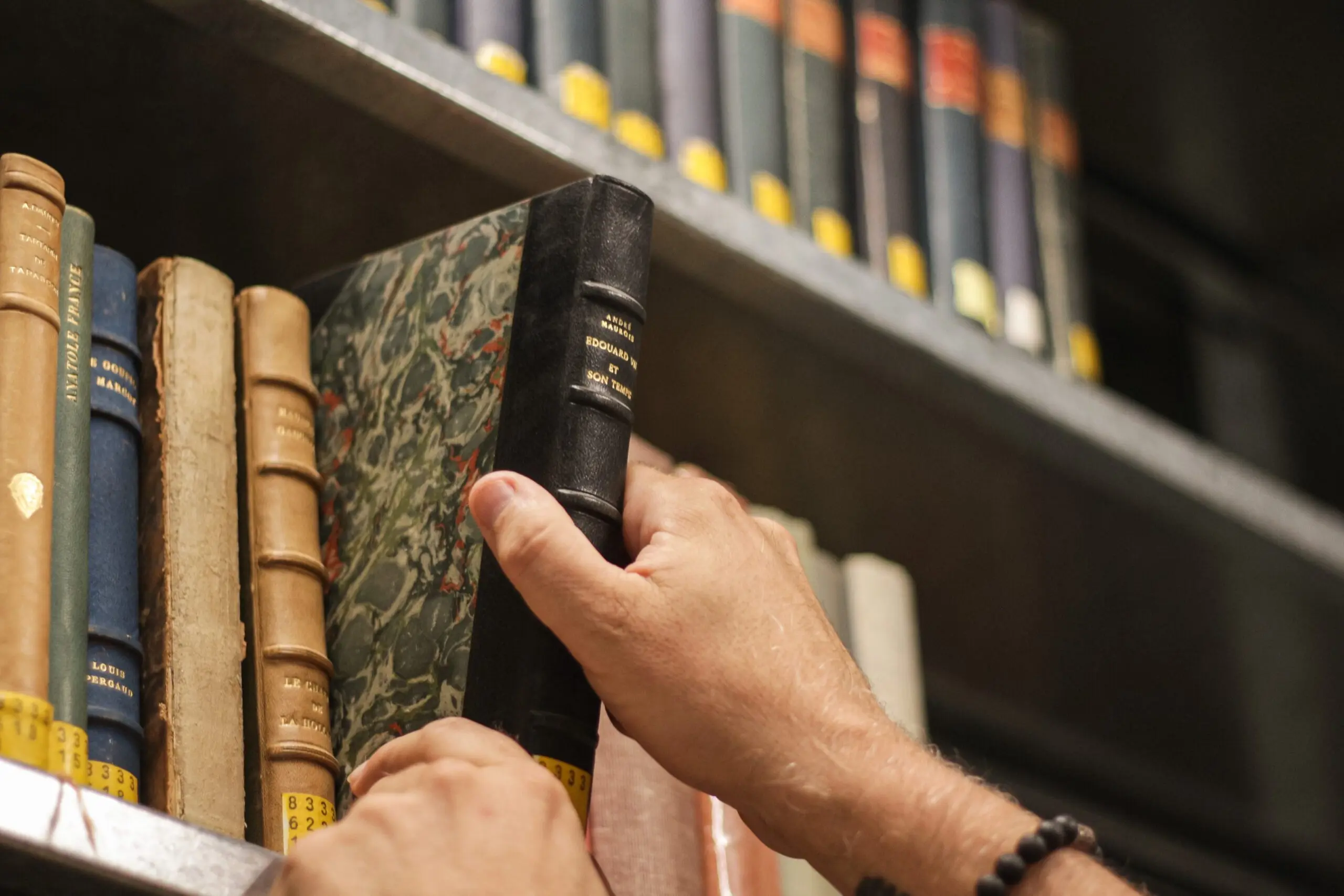A majority of the House of Representatives wants all Dutch higher education institutions to develop plans to improve academic freedom. KNAW expert André Nollkaemper is open to the idea. “The basic principle should be that staff and students treat each other with respect, but there’s nothing wrong with a heated discussion.”
Books in the TU Delft Library archives. (Photo: Justyna Botor)
During a parliamentary debate on safety in higher education, Joost Eerdmans (JA21) tabled a motion asking the government to sit down with higher education institutions to come up with plans “containing concrete measures that each institution will take individually to improve academic freedom”.
Students and researchers should be able to engage in open debate, Eerdmans argues in the motion. He believes that academic freedom has “declined” (see also the box at the bottom), citing issues regarding social safety, freedom of expression and ideological pressure. He also calls for measures to protect academics from threats and intimidation.
Education minister Eppo Bruins called the motion unnecessary, arguing that universities have long been working to protect researchers dealing with threats. He also pointed out that he regularly talks to the Royal Netherlands Academy of Sciences (KNAW) – the “conscience of academia”, as he calls it – which published a report on academic freedom in 2021. Nevertheless, Eerdmans’ motion was supported by a majority of the House.
“Most of the threats to academic freedom are coming from outside the universities”, says André Nollkaemper, professor of international law and sustainability and chair of the KNAW Committee on Academic Freedom.
What are those threats?
“University funding, polarisation, the debate around knowledge security – they’re all issues that touch on academic freedom. These threats run deep, and you can’t place the blame on universities. Having said that, we should definitely pay attention to certain developments in higher education. Universities are facing looming obstacles when it comes to academic freedom, open debate, free speech and guest speakers.”
Will this motion help to change that?
“Think of it as an incentive. Universities always have a responsibility to promote academic freedom, and finding the best way to do that requires a constant effort.”
How big is the problem?
“Teachers and students have been asked about self-censorship. Between 14 and 28 percent of teachers said they felt restricted in their interactions with students, or in classroom discussions on sensitive issues. Similarly, 34 percent of students feel they can’t speak freely to their teachers. That’s something universities need to address.”
But taking a moment to think before sharing your opinion isn’t necessarily a threat to academic freedom, is it?
“No, in some cases it’s understandable. Take discussions about Gaza, genocide and discrimination, for instance. I myself have taught courses on the Srebrenica massacre and the Yugoslav Wars, including to students from that region, which meant I had to tread very carefully. You need to be aware of other people’s perspectives, and sometimes you might be a bit more reserved in how you express yourself.”
Have you ever felt restricted in your academic freedom?
“No. I’ve taken part in several debates on Israel, and although I did come up against sensitivities, there were never any restrictions. But there’s clearly a problem at the University of Amsterdam, with people on both ends of the spectrum saying they don’t always feel free to express themselves. That applies as much to students and staff who support the Palestinian cause as it does to some Jewish students and researchers.”
Isn’t academic freedom different from the freedom to hold up a banner?
“That’s true, academic freedom isn’t the same as freedom of speech or the right to protest. But if you look at sit-ins and lectures in the lobbies of university buildings, you see protest, education and debate all flowing together. The basic principle should be that staff and students treat each other with respect, but there’s nothing wrong with a heated discussion.”
What do you do when people feel socially unsafe just because their opinions are being challenged?
“For political and ideological reasons, people can have very different opinions on sensitive issues. While academic freedom does require social safety – which also needs to be improved – they really are two different things. This motion is pulling academic freedom into the realm of social safety, and I don’t think that’s a good idea.”
HOP, Bas Belleman
Translation: Taalcentrum-VU
Wait and see
The motion has been met with a lukewarm response from higher education institutions. “We’re curious to see how the minister intends to flesh this out”, said a spokesperson for university umbrella organisation UNL. “We’ll have to wait and see how things turn out before we can determine if and how we can cooperate.” The universities of applied sciences are also taking a wait-and-see approach.
Netherlands drops in global academic freedom ranking
The Netherlands is nowhere near the top of the Academic Freedom Index, a global academic freedom ranking that scores countries on a scale of 0 to 1. Bringing up the rear is North Korea, while the Czech Republic is in first place. With a score of 0.79, the Netherlands ranks below Botswana, Peru and Suriname.
Among EU countries, only Greece, Poland and Hungary are lower on the list (the gap with Hungary is especially large). Germany has a score of 0.93. Just a few years ago, the Netherlands was one of the top-ranking countries. The biggest drop in score is on ‘campus integrity’, which means that external interference with students and researchers on campus is thought to have increased.
The exact cause is not immediately apparent. KNAW has announced that it will soon publish an analysis of the Netherlands’ poor performance in academic freedom rankings.
Do you have a question or comment about this article?
redactie@hogeronderwijspersbureau.nl


Comments are closed.